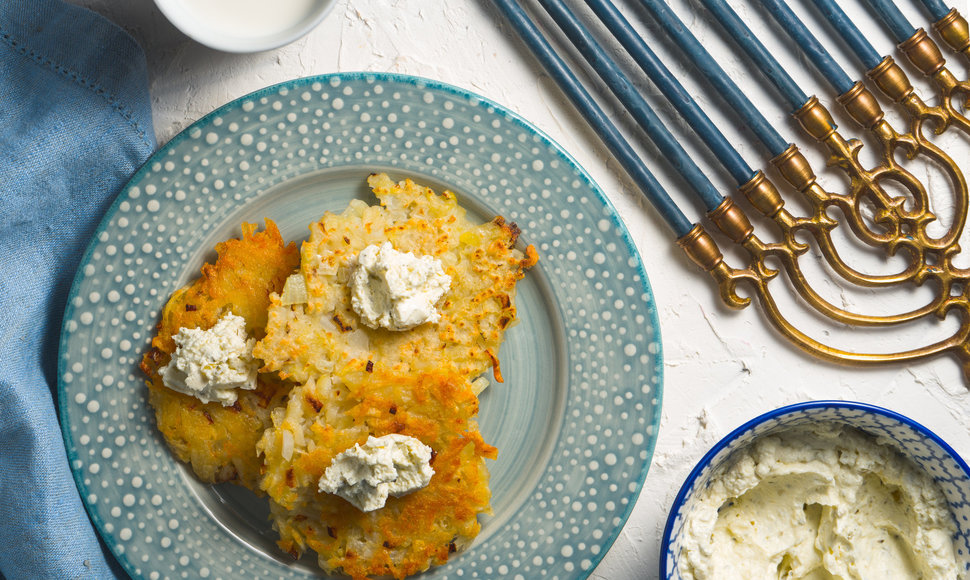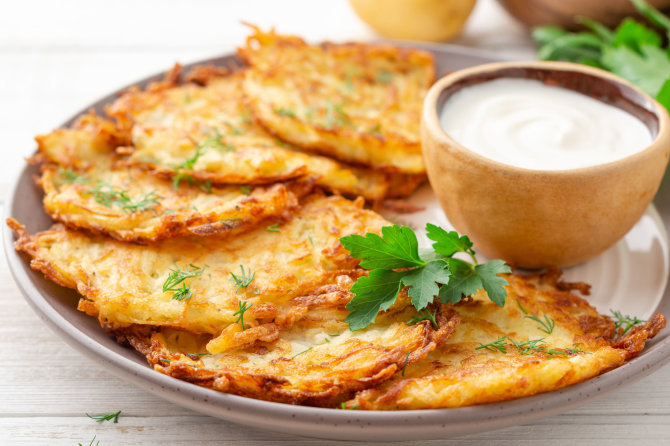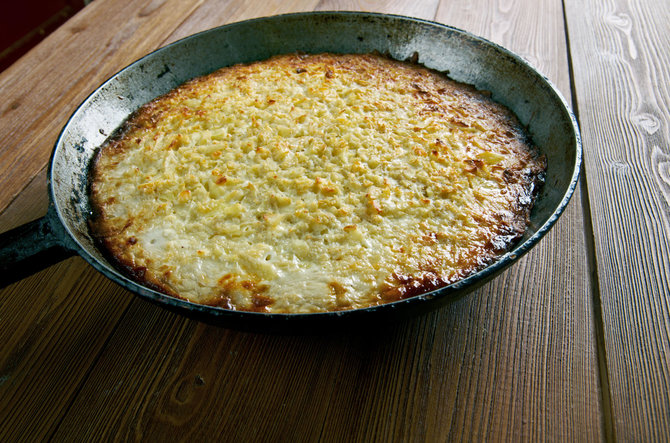These and many other questions were discussed during the event by Gil Hovav, a popular TV personality and food writer from Israel, together with Lithuanian entrepreneur and food blogger Nida Degutienė. A live Zoom event, which took place on May 23, 2021, was moderated by journalist and foodie Shira Springer, who is herself a big fan of Jewish cuisine.
Between food and culture
“We are thrilled to welcome all our featured speakers today – Shira Springer, Gil Hovav, and Nida Degutienė. We would like to thank the Lithuanian Culture Institute, the General Consulate of Lithuania in New York, and the Embassy of Lithuania in Israel for their help organizing this event. For those who are watching us – you are among more than 400 people from all over the world tuning into this program today. We have viewers from South Africa, Israel, Lithuania, Hungary, and of course the US,” the event started with welcoming words from Lynne Krasker Schultz who has been a member of Greater Boston’s Jewish community for the last 15 years. In 2015 Lynne took on the responsibility for programming and community outreach at the Vilna Shul, Boston's Center for Jewish Culture. Before the virtual microphone was passed to the event’s moderator, she added: “Today we focus on bringing people together through art, culture, and ideas. We hope that this event about food, culture and unexpected connections between the two is in equal parts fun and thought-provoking, and will bind us together in unique and unusual ways. We look forward to exploring these connections during this particular conversation.”
Food creates memories
“Food connects and unites us. Sometimes it connects us to each other. Sometimes it connects us to a country, sometimes it connects us to a memory of place and time,” the event’s moderator Shira Springer started the conversation by encouraging the speakers and viewers to reminisce. This was followed by Gil Hovav’s story about the boldness of Lithuanian food. Gil also noted that he was 1/8-part Lithuanian and therefore felt very connected to Lithuanian cuisine.
“We have good friends, and the mother of my friend who is already quite elderly always makes this wonderful onion noodle kugel, which comes from Lithuania. She is not Lithuanian, but she learned this from her mother-in-law, who was Lithuanian. We always wanted her to bring it to Shabbat dinners because it's really something wonderful. Her grandson went to study cookery at the Culinary Institute of America and came back to Israel, and it was a big shift. He opened a restaurant in Tel Aviv and because it's in Tel Aviv, it's vegetarian. It's all cement and glass and this and that, and white tablecloths... But he told his grandmother, you know, Grandma, I want to have your onion kugel on my menu, because I think it's the best dish in the world. But my crew and I are going to study the recipe closely and try to improve it. We're not going to use powdered onion bullion, we're going to use real onions instead and we're going to use this and we're going to use that. The grandma looked at him and said: “If you don’t follow the recipe, you will ruin it. It's a Lithuanian recipe. It should be the way it used to be. I don't want it to change. This is the food we eat. And this is the food we love”. I respect this so much and I'm so happy she didn't give him the recipe because this way it stayed real and this is what's so wonderful about Lithuanian food – it’s connected to the soul and it's connected to whatever is real and this is why we love it so much,” enthused Gil.
The food writer also added that there has been a shift in Israel with regards to eating Eastern European Jewish food, such as bagels, latkes, kugel, chicken soup, etc. “Israel is a Middle Eastern country, so the food we eat today is much more Arab, much more Middle Eastern, or Eastern Mediterranean. It's fresher, it's more colourful. We are slowly moving away from blintzes, latkes, and the like. Having said that, we love it. We love it, but we don't eat it on a daily basis. Mostly on holidays.”
Lithuanian and Jewish cuisines
Nida Degutienė shared that she has always been fascinated by Jewish food, ever since her childhood. Growing up she learned that Jewish food is something amazing, mysterious, special, delicious, healthy – the best food in the world. So when she came to Israel as the wife of Lithuania’s ambassador to the country, Nida was very excited to learn the secrets of Jewish food, which is very highly regarded by many Lithuanians. But to her surprise, upon first visiting a Jewish home, Nida was welcomed by a table laden with Lithuanian dishes. She recalls thinking at the time that perhaps the host was just trying to be nice by preparing all these Lithuanian dishes for her to enjoy. But the host said that those were not Lithuanian dishes – they were, in fact, Jewish. And it was then that Nida came to realize how closely Jewish and Lithuanian cuisines were interconnected.
“We still don’t know or fully understand the extent of this connection. But we are slowly getting this information through various sources. With travel people often discover the same food in New York and Tel Aviv and it is surprising for them. Take latkes, for instance, and say to the Lithuanians that this is Jewish food – they would definitely get protective!”
Where did bagels come from?
Jewish foods such as latkes, chicken soup, and bagels are considered the most important and essential ones. However, history is more complicated than it may seem at first glance. According to Nida Degutienė, the question of whether bagels originated in Lithuania is still open. In fact, the first written sources about bagels came from Kraków in Poland. At the time, Poland and Lithuania were one country, so in this respect, we, Lithuanians, can indeed consider ourselves part of the bagel history. The first time bagels appeared in sources from Britain was actually in the Jewish Board of Kraków, where the mention of bagels is surrounded by strange circumstances. The Jewish tradition of baking bagels for celebratory purposes came with certain rules (they were considered celebratory bread). The folklore of Lithuania mentions bagels and the fact that people would often visit traditional markets to buy bagels – some would even come specifically for these treats! However, with many of Lithuania’s Jews emigrating to the United States and South Africa, bagels disappeared from our country, too. Fortunately, today bagels are back to Lithuania, having gone the full circle from New York which made traditional bagels with poppy seeds famous. There were different types of bagels, called barankas, in the Soviet Union, too. These were popular and relatively cheap snack.
However, the story is a bit different in Israel, as Gil Hovav explains. People from abroad, mainly from the US, have the wrong idea of what Israeli food is. “People think of Jewish food and imagine that Israelis eat bagels and cream cheese and salmon. We don't. It's an American thing. We don't have these bagels in Israel. Perhaps here and there in Tel Aviv. But the bagel I grew up on in Jerusalem is very different,” explained Gil by showing the traditional Jerusalem bagel that looks nothing like what we are used to seeing.
Many foods, such as bagels and latkes, reflect the connections between approaches, histories, and cultures. By sharing meals we can relate to and understand each other much better, making us realize that we share our lives, too.














